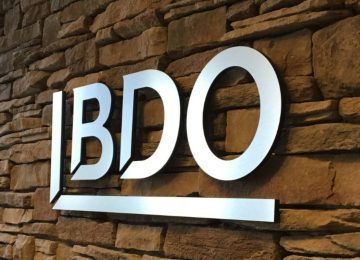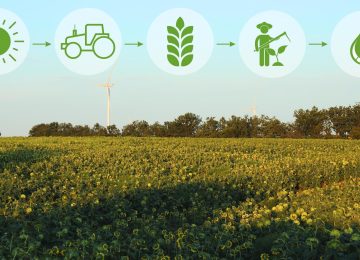S&P 500 companies are demonstrating increased transparency in their corporate sustainability disclosures, particularly concerning climate-related metrics and commitments, according to the 2025 “State of Corporate Sustainability Disclosure” report from UCLA Anderson School of Management’s Center for Impact.
While emissions reporting and climate risk assessments show rising momentum, a significant gap remains in companies’ transparency regarding the financing and strategies for their ambitious climate transition plans.
The third annual report, a collaboration between the Center for Impact and the UCLA Institute of the Environment and Sustainability’s Center for Corporate Environmental Performance, analyzes sustainability reports and proxy statements of S&P 500 companies.
It found that while Scope 1 and Scope 2 greenhouse gas emissions disclosures remain high (over 88%), Scope 3 disclosures (indirect emissions across the value chain) have notably increased from 56.4% to 69.8%.
Furthermore, 57% of S&P 500 companies have announced net-zero or carbon neutrality commitments, and 24.4% have publicly disclosed a climate transition plan outlining decarbonization pathways.
However, the report identifies a critical missing piece: financial transparency for these transition plans. “While companies are setting more ambitious climate goals, few are sharing how they plan to get there. Credible action demands clear transition plans, governance, and cost estimates,” said Professor Magali Delmas, lead author of the report and faculty director of the UCLA Center for Impact.
Key findings:
• 100% of companies with transition plans report mitigation strategies, but only 65.1% disclose adaptation measures.
• No company has fully disclosed capital or operating cost estimates for its transition strategy.
• Transition planning is most advanced in the utilities and materials sectors but lags in others.
These findings come amidst tightening regulatory requirements, such as California’s SB 253 and SB 261 and the EU’s Corporate Sustainability Reporting Directive.
The report emphasizes that companies improving data quality, setting interim targets, and strengthening governance will be better positioned for a low-carbon future.
Author’s note and matrix:
“By fully disclosing their sustainability performance, companies can demonstrate their leadership, build trust with stakeholders, and drive long-term value creation,” said Delmas. “The Open for Good Initiative emphasizes the importance of high-quality, credible disclosure, empowering companies to make a meaningful shift toward greater transparency and accountability.”
The “State of Corporate Sustainability Disclosure” is part of the Center for Impact’s “Open for Good initiative,” an ongoing research project launched in 2023 to promote corporate transparency in sustainability. The initiative analyzes S&P 500 companies’ disclosures across 39 metrics, including greenhouse gas emissions, diversity and inclusion, and CEO-to-median-worker-compensation ratio, providing an interactive dashboard for public access to the data.












